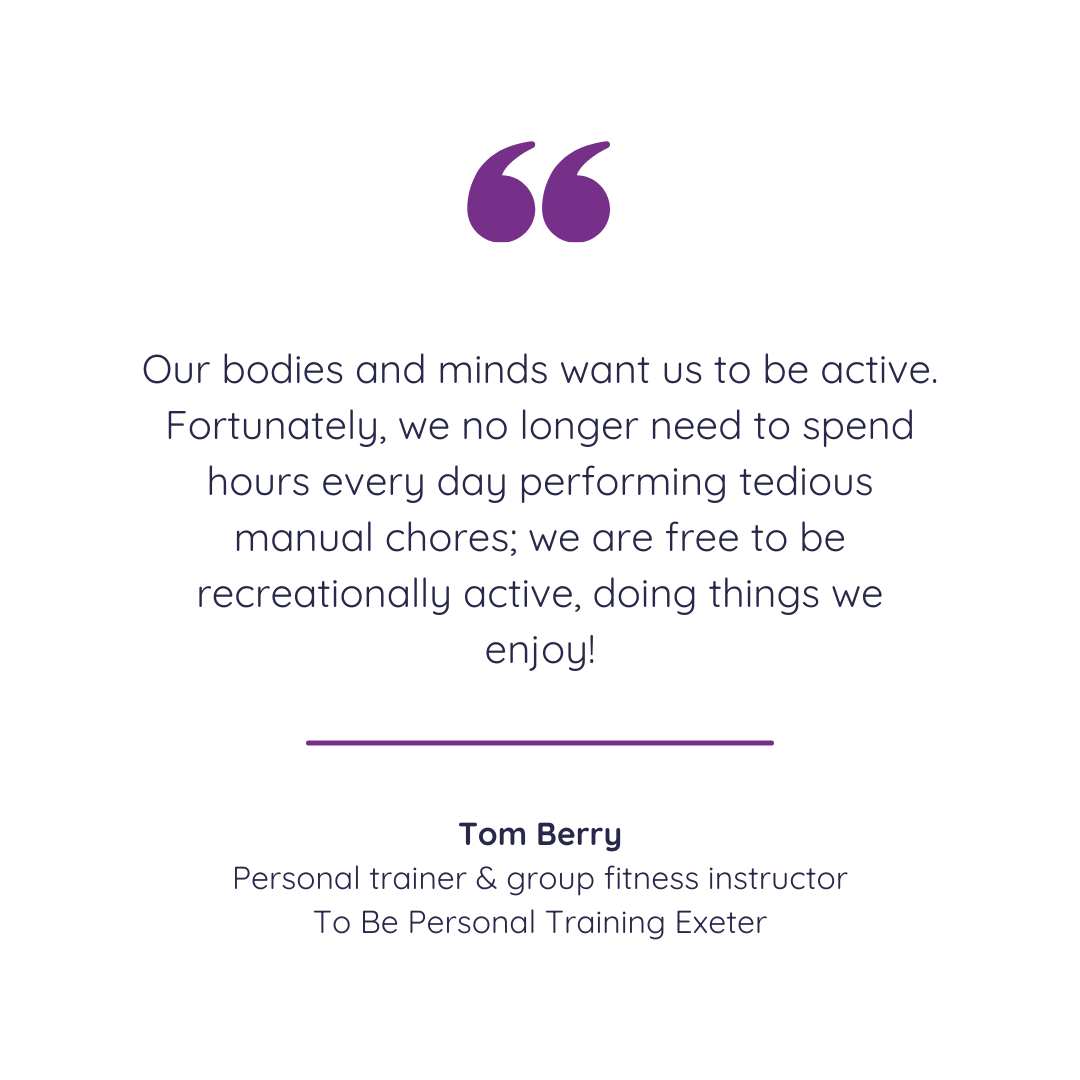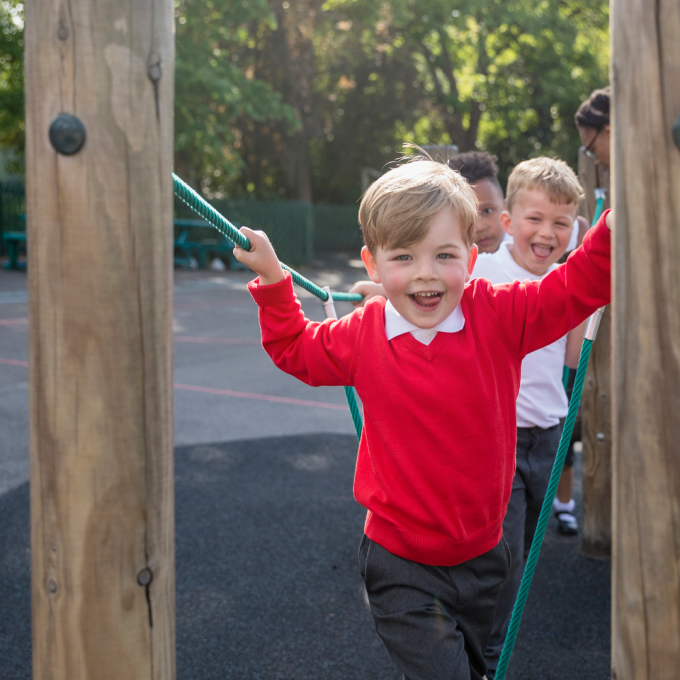Tom Berry, a seasoned personal trainer and athletics coach, shares his insights on the profound impact of movement on mental health and offers practical suggestions for incorporating more activity into daily life.
Join us as we celebrate Mental Health Awareness Week and explore the theme of 'Movement: Moving more for our mental health'.
Humans have evolved to be active. For hundreds of thousands of years, we’ve had to move to survive. Hunting and foraging, migrating and exploring, and dancing and fighting. It’s only within the last 100 years that technology has transformed our lives, allowing us to be very inactive. Most people’s grandparents can remember a world where washing clothes was done by hand, dishwashers didn’t exist, motor vehicles were rare, and the only screen in the house was your television (which had only 2 channels). Riding a bike was necessary for many people to get to work, not a recreational activity, and most jobs were laborious.
I’m not suggesting that we return to the Stone Age where life was miserable and dangerous, or that we should shun modern technology. We just need to understand that hundreds of thousands of years of evolution have shaped who we are. Our bodies and minds want us to be active. Fortunately, we no longer need to spend hours every day performing tedious manual chores; we are free to be recreationally active, doing things we enjoy!
The well-publicised benefits of the Daily Mile highlight the importance of activity for pupils. What makes the Daily Mile successful isn’t specifically the running and walking, but that it involves moderately vigorous activity. If the Daily Mile were replaced with 15 minutes of any other activity (e.g. cycling, dancing, sport or gymnastics) it would be equally as successful. The key is the activity.
The most natural activity we can perform is walking. It’s fantastic for cardiovascular fitness, basic leg and core strength, lower back health, proprioception, and balance. It’s also incredibly good for mental health, providing an opportunity to be mindful. It requires no specialist equipment, it gets us out in nature and can be done almost anywhere.

My first recommendation to any organisation wishing to improve the health of its employees, members or pupils is to encourage walking. One of the easiest ways to fit walking into the day is by commuting by foot (either the whole journey, or part of it).
I love play, and for over a decade I’ve been reminding people how much fun you can have playing sport and games. For 9 years, I ran my personal training business in Christchurch, New Zealand. Every week I would warm people up, regardless of age or physical ability, with lots of different games, usually involving balls.
People forget how fun friendly competition is, and it’s great for physical fitness! Play has lots of psycho-social benefits that are commonly overlooked. Games are microcosms of life, where defeat and victory can be experienced without long-term consequences. Sport teaches people how to cope with defeat positively and victory gracefully, as well as the value of teamwork and hard work. Sometimes you play well and lose, other times you get lucky - a process that helps build resilience. One day you might be the best in your team, another day, the worst. That’s life. From my experience, adults reap these psycho-social benefits as much as children.
There are infinite ways in which organisations can introduce more activity into their day, and good solutions depend on the exact circumstances of the school or setting. People in leadership roles need to be creative. The ultimate goal is to make people more active on a daily basis, and this activity doesn’t have to be structured fitness training. Walking is fantastic for health, and sport and games are brilliant too.
Lastly, activity doesn’t need to be high intensity, in fact, most of our daily activity has, historically, been low to moderate intensity. So, it’s over to you: how can you introduce more activity into your day?
Guest author bio
Tom Berry is a personal trainer, group fitness instructor, running coach and athletics coach at To Be Personal Training Exeter. Since 2011, he has conducted tens of thousands of sessions with clients in New Zealand and the UK. He is now settled in Exeter, where amongst other things, he is the Exeter University Athletics Club sprints and hurdles coach.

Ready to transform your approach to mental health and wellbeing?
Learn more about Thrive's whole school approach and take the first step towards creating a supportive and thriving educational environment. To explore whether Thrive may be a fit, and for advice on the best package for your setting, click below to schedule a zero-obligation call with a member of the team.
Pass it on
Small actions can lead to a big ripple effect. If you enjoyed this post or found it helpful, please consider supporting us in our mission to help every child and young person feel safe, supported and ready to learn by sharing it using the social media buttons below.
Want to join a like-minded community of senior leaders and classroom staff benefitting from insights and strategies to improve attendance, behaviour and attainment? Add your email address below. (It’s easy to unsubscribe).




_680.jpg)

_680.jpg)